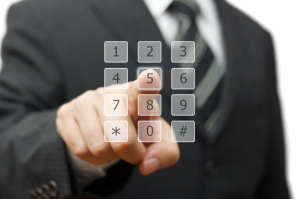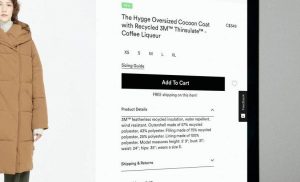 If your system of inbound call routing is as simple as a call coming in and your system sends it to the first available sales representative, we’re not judging you. Really, we’re not. But how your business responds to inbound sales calls can be the difference between losing a sale and closing it. Before you start raising your eyebrow, know this: each use case is easy to implement. With Ifbyphone’s simple web interface, for example, you can control the routing for all your numbers based on your own customizable rules, which can be updated on the fly. So with that out of the way, here are five examples.
If your system of inbound call routing is as simple as a call coming in and your system sends it to the first available sales representative, we’re not judging you. Really, we’re not. But how your business responds to inbound sales calls can be the difference between losing a sale and closing it. Before you start raising your eyebrow, know this: each use case is easy to implement. With Ifbyphone’s simple web interface, for example, you can control the routing for all your numbers based on your own customizable rules, which can be updated on the fly. So with that out of the way, here are five examples.
Route Calls By Time Of Day.
This is a simple example, but one that isn’t always used by businesses who have the option. Routing calls by office hours is obvious—your office is closed so calls are routed to voicemail—but what about time zones of your customers, weekends, holidays, and more? Where your caller is calling from may mean that their local location is closed, but you can route them to an open location and eliminate the risk of losing business.
Route Calls By Top-Performing Agent.
Every sales floor has the rep who is The Closer. You don’t have to admit it out loud, but you know who your stars are. If you’re really wanting to get your numbers up this quarter, adjust your call routing options so that a higher percentage of incoming calls are routed straight to your Closers. When your best performing reps are getting more calls, your numbers are bound to improve.
Route Calls Based On Marketing Source.
This one is a lot easier to achieve if you’re working with a voice-based marketing automation platform. For example, Ifbyphone can tell which ad, search keyword, marketing campaign, or other source a person is calling from, so you can route calls differently for different sources. For example, if you have a web page dedicated to a particular product, that page can have a unique call tracking number that automatically routes the call to the organization, department, or representative that specializes in that product. Being routed to the person who is best equipped to answer their particular needs can only mean good things for the chances of conversion.
Route Calls With Geo-Location.
Many businesses have Store Locator capabilities, but geo-location is an advanced breed of Store Locator. Smartphones and mobile devices are driving billions of sales calls to U.S. businesses each month. Routing these calls to the right location or person is critical to optimizing conversions and sales. If a customer uses their smartphone to search locally for your business, they can simply use a click-to-call to connect with you directly. That number will be a call tracking number so the source will be evident for tracking ROI, and the geo-location technology determines the caller’s exact latitude and longitude using cell phone triangulation. The call can then be automatically routed to the closest or most appropriate store, franchise, office, or agent.
In addition, with geo-location, you can advertise one phone number for your business—as opposed to multiple unique phone numbers—and that phone number automatically triangulates the location of the caller and routes them to the nearest location. This applies to both mobile and landline callers, but it’s especially relevant in today’s mobile world. Having a single phone number that works for every store is a nice benefit for customers who like to feel the security of there being one number they can call to reach you.
Route Calls Based On VIP Status.
This example is most relevant to support teams, but it’s still an important one if you want to hold on to your best customers. For really big (or really important) customers, you can provide them with a special phone number for expedited support, meaning their call will be routed to the VIP line. This priority call queuing is unknown by other callers, but gives VIP customers the special treatment you have decided they require. Shortening hold times (or eliminating them altogether) can have a very positive effect on your relationship with that VIP customer and is an incentive for them to keep their business with you.
Business Articles | Business 2 Community
(312)
Report Post






